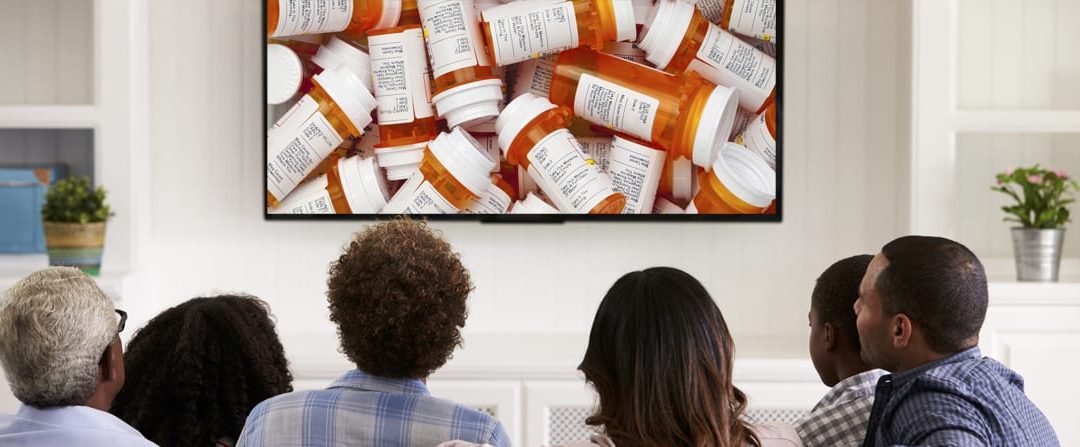Shopping Abroad For Cheaper Medication
American consumers often wonder whether it’s okay to purchase a prescription drug from a foreign pharmacy and bring it back to the United States. The rationale for doing so is clear, particularly at a time when healthcare costs are skyrocketing in the U.S.:
- The costs of brand-name drugs are usually substantially lower overseas.
- Some drugs are available in other countries but not in the U.S.
- Some prescription drugs here do not require a prescription overseas.
So why wouldn’t a person already strapped with medical bills or high co-pay costs take advantage of these savings? Mainly because it is illegal.1
Current laws in the U.S. disallow the foreign purchase of drugs for “personal importation” or “reimportation.” This includes driving over the border to Canada or Mexico to buy the same, exact drug legally approved and licensed here.
Despite this legal barrier, many Americans are still willing to take the risk, particularly if it means not having to choose between the rent and getting the medications you may desperately need.
To this end, here are four things you should know if you intend to buy a prescription drug from a foreign pharmacy:
Understanding Personal Importation and Re-Importation
:max_bytes(150000):strip_icc():format(webp)/prescriptions-56bfa3773df78c0b138e6701.jpg)
Personal importation is defined by the U.S. Food and Drug Administration (FDA) as the act of bringing a prescription drug into the U.S. from another country for personal use. Re-importation is the practice of purchasing a drug overseas that was manufactured in the U.S. and bringing it back into the U.S.
Both practices are against the law.2 And, this applies to any drug, whether or not it is FDA-approved and whether you purchase it in person or by mail.
There are a number of reasons for this: Shopping Abroad For Cheaper Medication
- The FDA is responsible for ensuring that all prescription drugs in the U.S. are safe and authentic, and they cannot do this if the drug is outside of their chain of custody or quality oversight.
- Even if a drug is manufactured at an FDA-approved facility in, say, India (as many are), there is no recourse if there is a problem with the drug (as sometimes happens).
- Prescription drugs discontinued here may be available overseas, but there is usually a serious reason why it was discontinued. Purchasing a drug like this is akin to self-prescribing, and that is something that you should never do.
- Experimental drugs used for cancer and other illness are more likely than not to have been inadequately tested, meaning that you’re taking your life into your own hands.
On the other hand, there is also some truth to the conceit that the drug lobby in the U.S. is strong and that many of these laws are in place to protect the interests of pharmaceutical companies. It is why certain U.S.-manufactured HIV drugs, for example, cost over $2,000 per month here and less than $100 for consumers in Africa and India.
When Importation Is Allowed
:max_bytes(150000):strip_icc():format(webp)/drugs-56bfa3d65f9b5829f866fb25.jpg)
While the FDA is incredibly strict about drugs being brought into the U.S. for resale or commercial distribution, they are less stringent about individuals doing the same for their own personal use.
For its part, the FDA provides guidelines that clearly spell out when a prescription can or cannot be filled overseas and brought back to the U.S.
These include: Shopping Abroad For Cheaper Medication
- When a drug is not yet approved in the U.S. but is prescribed for a serious condition for which there is no equivalent at home
- When the amount being imported is no more than a three-month supply
- When the drug is declared at Customs with the appropriate prescription or documentation
Dealing With US Customs
:max_bytes(150000):strip_icc():format(webp)/USCBP-56bfa4c65f9b5829f866fbcd.jpg)
The U.S Customs and Border Protection is responsible for ensuring that illegal goods are immediately identified and seized as they reach the border.
If you decide to bring home a three-month supply of drugs for personal use, here is what will need to do to prepare: Shopping Abroad For Cheaper Medication
- Make sure that you declare any and all drug purchases. If you don’t and the customs officer finds out, you may be hit with sizable penalties.
- If a drug purchase is suspicious, it will be confiscated and set aside for review by the FDA to determine whether the medications meet the legal requirement for import. If not, they will be destroyed. Shopping Abroad For Cheaper Medication
- Prescription drugs should be stored in their original containers along with a copy of the original prescription.
Purchasing Drugs From an Online Pharmacy
:max_bytes(150000):strip_icc():format(webp)/online-presciption-56bfa54b3df78c0b138e67d3.jpg)
Purchasing a drug from an online overseas pharmacy may save you money, but it can end up costing you more if the provider is disreputable.3 Having a great-looking website should never be considered a sign that a provider is either legitimate or trustworthy.
Even beyond the legitimacy of a provider, the FDA warns that certain brand names used abroad are not the same used in the U.S. In some cases, the non-active ingredients or even active ingredients may be completely different.
For example:
- In the U.S., the prostate medication Flomax is the brand name of the drug tamsulosin. In Italy, the active ingredient for Flomax is morniflumate, an anti-inflammatory drug.
- Norpramin is sold in Spain for peptic ulcers, while the Norpramin sold in the U.S. is for depression. Getting those two mixed up could have dire consequences.
Whether purchasing online or in person, always check the label closely and never buy a product if the list of ingredients is not clearly displayed in a language you can fluently read.
Moreover, double-check the currency conversion rates before making a purchase to ensure you’re actually saving money. This includes any shipping or handling charges the pharmacy might add.
In the end, it’s important to use your best judgment. If something doesn’t feel right to you, follow your instincts and find another provider.

